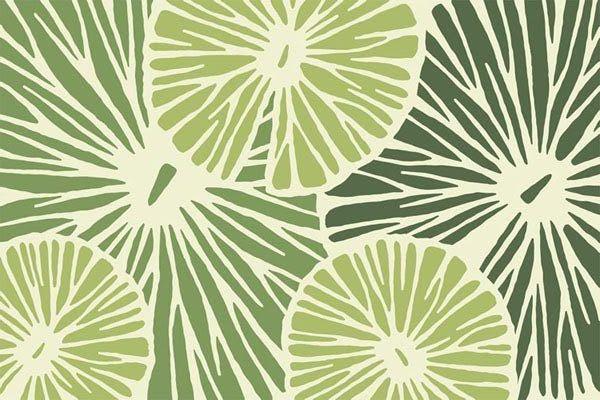
Get the latest articles delivered directly to your inbox!
Our Contributors
Class of 2022
Kyle Duke
Austin Foster
Charlotte Leblang
Ross Lordo
Class of 2021
Dory Askins
Connor Brunson
Keiko Cooley
Mason Jackson
Class of 2020
Megan Angermayer
Carrie Bailes
Leanne Brechtel
Hope Conrad
Alexis del Vecchio
Brantley Dick
Scott Farley
Irina Geiculescu
Alex Hartman
Zegilor Laney
Julia Moss
Josh Schammel
Raychel Simpson
Teodora Stoikov
Anna Tarasidis
Class of 2019
Michael Alexander
Caitlin Li
Ben Snyder
Class of 2018
Alyssa Adkins
Tee Griscom
Stephen Hudson
Eleasa Hulon
Hannah Kline
Andrew Lee
Noah Smith
Crystal Sosa
Jeremiah White
Jessica Williams
Class of 2017
Carly Atwood
Laura Cook
Ben DeMarco
Rachel Nelson
Megan Epperson
Rachel Heidt
Tori Seigler
Class of 2016
Shea Ray
Matt Eisenstat
Eric Fulmer
Geevan George
Maglin Halsey
Jennifer Reinovsky
Kyle Townsend
Join USCSOMG students on their journeys to becoming exceptional physician leaders.

Trust
As second-year students wrap up our first module of the year, Ebola rages on in West Africa. It’s hard not to pay attention to world news about infectious disease after spending the past four weeks immersing ourselves in information about all sorts of bacteria, viruses, and parasites. More than anything, it’s yet another reminder that medical school is not a jaunt into abstract learning, but it teaches us about real sickness that causes real suffering and death for real people. It’s a big deal.
Last week in class with Dr. Hodinka, we talked at length about Ebola. Obviously, it’s a scary virus, and there are a lot of reasons that it’s spreading so fast. One thing that really stuck out to me, though, was how much of the fear surrounding Ebola has destroyed so much of the trust in healthcare providers there. (http://blogs.reuters.com/great-debate/2014/07/30/efforts-against-ebola-outbreak-hampered-by-victims-lack-of-trust-in-healthcare-workers/) When people lose trust in those who want to help them, health and healthcare can so easily disintegrate. Now we’re hearing about communities that are looting newly-established clinics, banning doctors from entering their villages, and disease is spreading rapidly.
But to be honest, to let someone come and care for you, you’ve got to have trust that they know what they’re doing and that their motives are pure. You’ve got to believe that they are knowledgeable, that they are acting safely, and that they are truly acting in your best interest. This is the same in Africa as it is here in the US – these are the kinds of things that we expect to establish about our doctors and nurses before we let them stick needles into our arms or before we let them surgically cut our bodies open. Truly, for healthcare to work efficiently, we’ve got to establish incredibly high levels of trust with our physicians. That trust has to bridge differences of nationality, socioeconomic status, race, sexual orientation – the kinds of differences that have potential to tear apart any society (I think of recent news about Ferguson, LGBT court rulings, and Ebola as relevant examples). And for us medical students, that level of trust lot to live up to!
As a medical student, I hope that one day my patients will trust me that way. I hope that my patients trust me enough to let me vaccinate their children. I hope they trust me enough to feel safe bringing up their questions about their health. I hope my patients trust me enough to let me perform painful procedures. I hope they trust me enough to talk about their feelings of depression and thoughts of suicide.
As future physicians, we’re going to be asking for a lot of trust. Admittedly, that’s a pretty tall order. And so, for now, that’s why we’re doing everything we can to begin building a foundation to earn that kind of trust. That’s why we practice having hard and scary conversations with standardized patients, and that’s why we get experience across all socioeconomic factors and cultural differences through our EMT work. For now, I’m learning everything possible to become the most knowledgeable and caring physician that I can possibly be, and hopefully then I’ll be someone worth trusting with a life.

Rachel Nelson
I’m originally from Brentwood, Tennessee, and I came to South Carolina to attend college at Furman University where I was a music major, outdoor enthusiast and lover of life. I never expected to spend four more years here in Greenville, but I could not be more excited to have the opportunity to stay and be a part of this incredible program at the USC School of Medicine in Greenville! I hope that through this blog you will be able to see, as I did, a glimpse of the inspiring vision and stunning reality of this medical school, and that you will share in our innovative and hands-on journey to becoming tomorrow’s doctors.
Copyright 2021 USC School of Medicine Greenville

